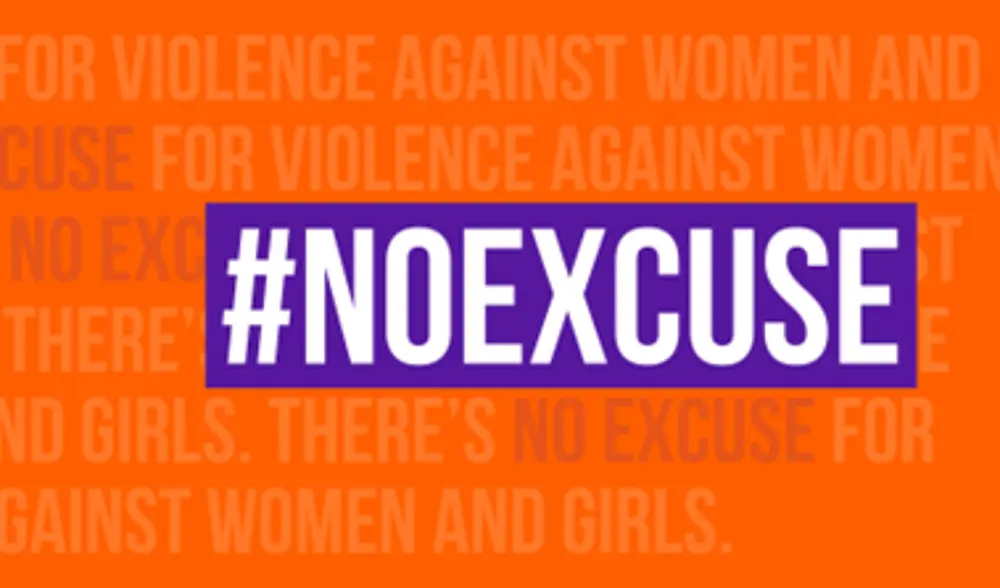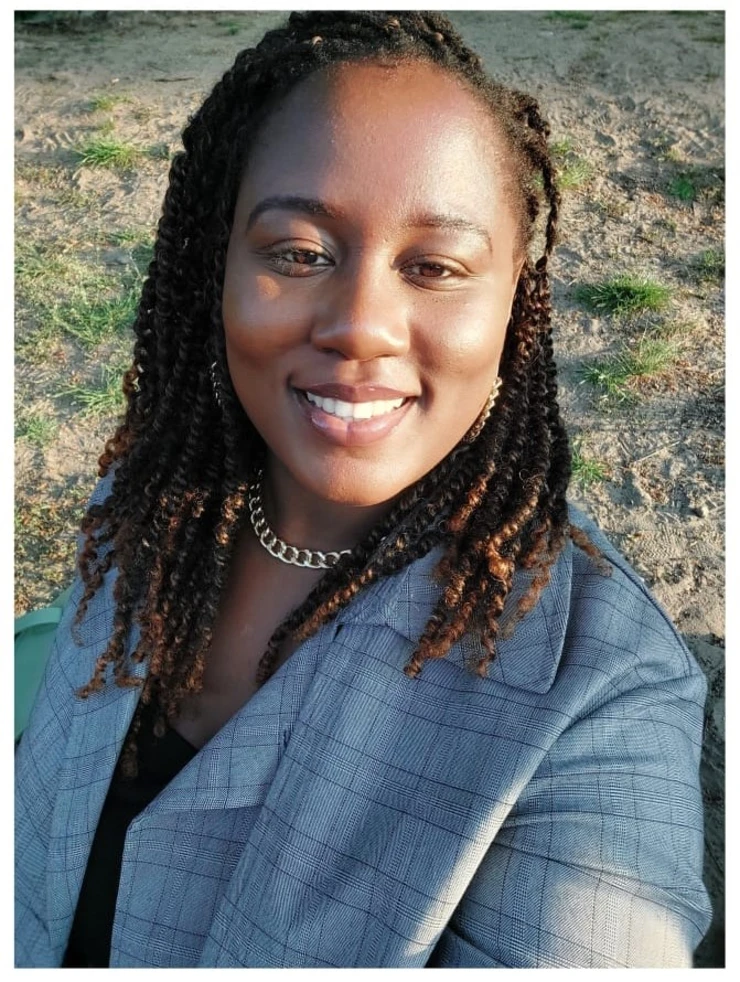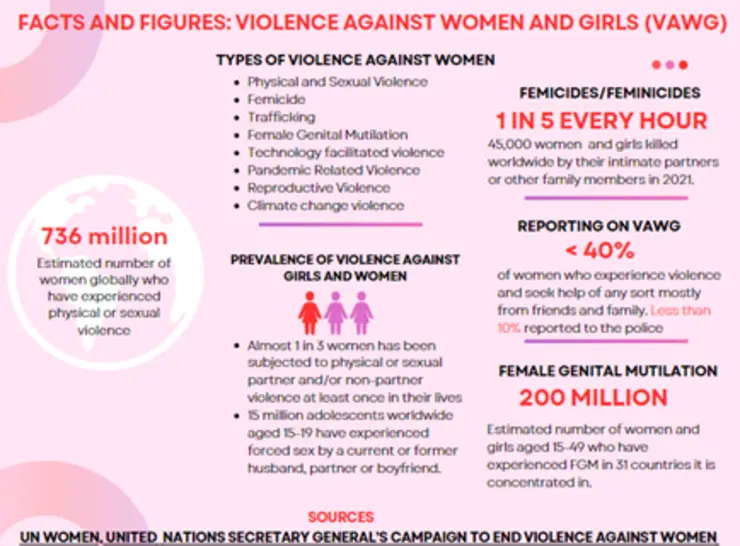Elimination of Violence Against Girls and Women: From Theory to Practice

Girls and women worldwide continue to face increased levels of violence, discrimination and other human rights violations including but not limited to physical, sexual, emotional, and economic violence, reproductive coercion, child marriage and trafficking. These forms of harm are also being reproduced in online spaces through cyberbullying and trolling where whole communities are being built under an umbrella of misogyny and hate towards women.
Annually, 25th November marks the International Day of Violence against Women, commencing the 16 Days of Activism against Gender-Based Violence that runs until 10th December, Human Rights Day. This year’s theme, “UNITE! Invest to prevent violence against women and girls”, under the #NoExcuse tagline, is a call to citizens worldwide to demonstrate their care and stance on ending violence against women and girls as well as governments to share their investments towards this cause. A world devoid of violence against girls and women sometimes feels like this utopic idea that many of us may never see during our lifetime. It is however essential that we reimagine such a world and as this year's theme suggests, actively invest towards it. The question then begs, how would such an investment look like at the individual, communal, national, and global levels? I will attempt to ideate this in a few words borne from my own lived experiences and observations and influenced heavily by the ideas and works of many women worldwide involved in this cause.
Investment in women at a personal and individual level looks like believing victims of physical and sexual violence when they come forward whether in two hours or ten years. It involves allowing them to tell their stories with love and support as they relive these harrowing experiences. It includes not asking what they were wearing, why they were walking out alone at night, why they did not leave among other victim-blaming questions.
Communally, we need to stop protecting abusers and enabling them to commit these acts either because they have money, influence, status, or proximity to things we benefit from. We have seen individuals such as Harvey Weinstein allowed to harm their victims for years not only by their own doing but also by the enabling environment of those around them. This is not only limited to rich people but includes your neighbourhood religious elder, creepy uncle and ‘weird’ high school sports teacher who has been harassing young girls and women for years as an open secret without any repercussions. The elders especially in such situations have a duty to protect those under their care from such occurrences. Men must also hold each other accountable and stand in the gap for women being abused by their friends and peers. Practically, this looks like stopping their mates from catcalling, groping women in public places, and speaking up against ‘locker room talk’ as it happens. I highlight men because often, they are the main perpetrators of violence against girls and women. Aside from words, as communities, we have an obligation to pool resources for victims of abuse whether it is towards sustaining shelters for them or directly giving them money to help with the physical, emotional, and mental hardship that comes with abuse. Where money is limited, we can all dedicate our time, social capital, and simple things such as our social media accounts to report individuals who constantly harass women online.
At a policy level, governments must invest more especially towards the prevention of violence against girls and women. One way is pumping money into projects that are aimed at economically empowering women as there are direct links towards poverty and increased risk of violence. Such initiatives should centre what women want, avoiding a top-down approach which has at times exposed women to even more violence where cultural context has been ignored. There is also e need to directly fund grassroots women's organisations that are often overlooked yet they have feet on the ground, working closely with the women and are therefore more apt at advocating and using resources for girls' and women’s safety.
The patriarchal world we live in means that from birth, many of us are exposed to misogynistic narratives within our families, communities and today, online. More governments therefore need to fund educational programs that touch on gender-based violence among school-going children and young people as a preventative measure. This will help nip some of the misogynistic trends that are societally ingrained at the root level before they manifest into bigger problems. Such programs can possibly be covered under Comprehensive Sex Education in schools with elements of emotional sensitivities when dealing with individuals of different genders, educating young girls and women about sexual and reproductive agency in intimate relationships and allowing for discussions on these sensitive topics. It is easier to course-correct behaviour among children, teenagers and young people as opposed to dealing with these problems when they are adults.
Tighter laws and controls also need to be initiated against perpetrators of violence. Abuse survivors often shy away from reporting because their experiences are not only invalidated but the justice system is also difficult to navigate. For the few who do report, the burden of proof is left to them with perpetrators being given the benefit of the doubt leading to a drawn-out journey to justice where the victims repeatedly narrate their stories, incurring financial and time loss with no clear end in sight. Additionally, they are met with law enforcement officers, judges and lawyers who are insensitive to their cause. More governments can therefore invest in consolidating some of these processes to allow victims of violence to not constantly rehash their trauma. Sensitivity training is also necessary for those they report to. Such initiatives may mean that more perpetrators are brought to book, acting as a deterrent for those who may otherwise engage in acts of violence against young girls and women, given the consequences.
I think it is important to highlight the advent of social media which has brought with it numerous instances of online gender-based violence (OGBV). Outside of our own individual efforts such as reporting violent content, there needs to be a more collective approach by governments to mandate social media platforms such as X (formerly Twitter), TikTok and Facebook to combat OGBV through means such as content moderation, preventing the growth of incel communities and deplatforming accounts that promote harm against women.
Girls and women in this world deserve better and should be supported and protected from harm. We are losing too many women to femicide, physical, sexual, economic, and emotional violence that is perpetuated both communally and systematically. Eliminating these forms of violence requires us not only to take a stand verbally but also to dedicate our time and resources in especially preventing them. This can be done through small everyday practices as well as larger steps from governments and the global world. A world where women are free can and should exist, but this involves proactive steps, uncomfortable conversations and for many of us, men especially, losing some of the privileges enjoyed under the patriarchy. Any society that takes care of the needs of the most marginalised is a society that benefits everyone because none of us are free until we are all free.
Table Source: UN Women - United Nations Secretary-General's Campaign to End Violence Against Women. (2023). Concept Note - 16 Days of Activism against Gender-Based Violence 25 November-10 December.
About the Author

Tracy Shimoli is a first-year student at the Willy Brandt School. She comes from Kenya with a B.A. in International Relations and Security Studies and work experience in the investment promotion field. Her interests are in gender justice and advocacy.
~ The views represented in this blog post do not necessarily represent those of the Brandt School. ~
